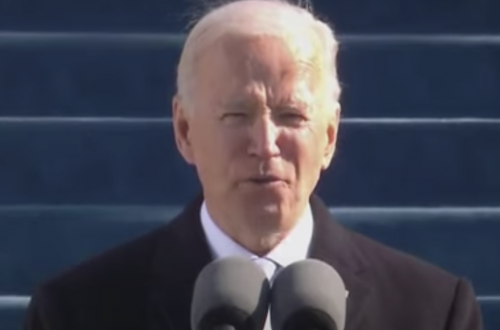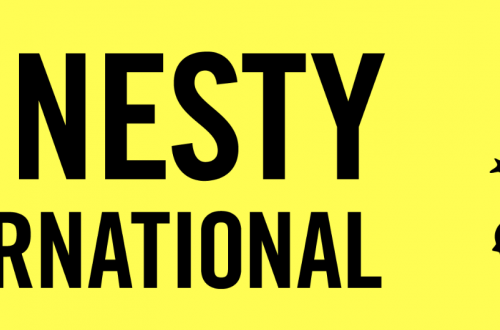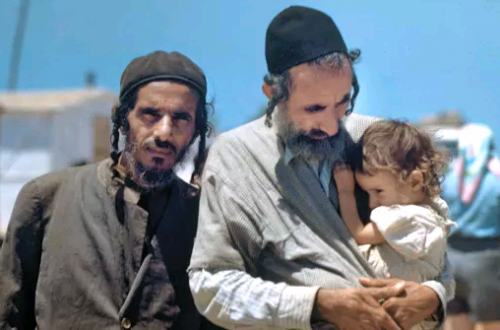This Facebook status was written by Daniel Estrin formerly at AP and now an NPR International Correspondent. He’s been covering Israel for several years from Jerusalem. I re-post it here with his permission
I spoke with Ari Shapiro on NPR All Things Considered today about what Israeli police say they found in their corruption investigations into Israeli Prime Minister Benjamin Netanyahu.
Here’s a lengthy summary based on the police statement, if you’re interested in the details:
Israeli police say they have completed two criminal investigations into Netanyahu, and say they found enough evidence to recommend he be indicted for bribery, fraud and breach of trust. Now it’s up for prosecutors to decide whether to indict him, and that could take many months, or perhaps a year.
“Case 1000” involves Netanyahu receiving gifts from two businessmen, Israeli Hollywood producer Arnon Milchan (producer of Pretty Women) and Australian businessman James Packer (Mariah Carey’s ex).
“Case 2000” involves Netanyahu’s efforts to weaken the Israel Today newspaper (a newspaper that has a pro-Netanyahu line and is bankrolled by his own supporter, and Trump donor, Sheldon Adelson) through legislation and other ways, in exchange for publisher Arnon (Noni) Mozes promising Netanyahu positive press coverage in his Yediot Ahronot newspaper. Police believe there is evidence to indict Noni Mozes with offering bribes.
TIMELINE OF POLICE PROBE
In the first half of 2016, police received evidence from various sources that raised suspicion of wrongdoing by Netanyahu. The Attorney General began an initial probe in July 2016. In December 2016, the attorney general ordered a criminal investigation. The national police fraud squad investigated, with oversight by the state attorney and the attorney general.
The investigations involved about 180 witness statements from 80 witnesses. Six were questioned through requests to foreign countries, some of which took a long time.
SUMMARY OF EACH CASE
Case 1000:
Police learned about gifts given to Netanyahu but it took a while before police uncovered evidence of favors Netanyahu gave in return. Over a decade, from 2007 till 2016, Netanyahu and his family members allegedly received cigars, champaign and jewelry from two businessmen or their associates.
Netanyahu received about a million shekels worth of gifts (the dollar equivalent of more than $282,000). The bulk of that was 750,000 shekels (about $212,000) from Milchan. Packer gave Netanyahu a total of 250,000 shekels (about $70,000) which he started giving in 2014 when the two businessmen decided to split the costs of the gifts given to Netanyahu. After Netanyahu was reelected in 2009, the breadth and frequency of the gifts increased significantly.
– Netanyahu is suspected of trying to advance a tax break in Israel which would have great financial benefit to Milchan. Netanyahu asked finance ministry officials to advance the tax exemption, but the officials said this would not be in Israel’s national interest.
– Netanyahu is suspected of acting to get Milchan a renewed US visa. Netanyahu pressed the US ambassador and John Kerry about this.
-Netanyahu pressed communications ministry officials to ensure Milchan would be a shareholder of a television network, which would have helped Milchan financially.
-Netanyahu tried to help Milchan with a business venture involving an Indian businessman. (Israeli TV reports Milchan and the businessman wanted to build a free trade zone on the Jordanian border.) Netanyahu pressed the issue with other Israeli officials who objected.
-Netanyahu dealt with matters related to another Israeli television channel, Channel 10, though his friend Milchan was a shareholder in the channel.
Case 2000:
Since 2009, Netanyahu and Mozes spoke about a deal: Mozes would help Netanyahu strengthen his position as Prime Minister through positive and supportive press coverage in Yediot Ahronot newspaper, in exchange for Netanyahu advancing the newspaper’s financial interests by working to undercut the rise of the Israel Today newspaper. The two then worked to advance each other’s interests, or at least told each other they were.
The investigation is based on two secret tape recordings done at the behest of Netanyahu, recorded by Netanyahu’s chief of staff at the time in the prime minister’s office. According to the recordings, Netanyahu pledged to work to limit the circulation of Israel Today, cancel Israel Today’s weekend edition, and lobby wealthy people to buy Yediot Ahronot


